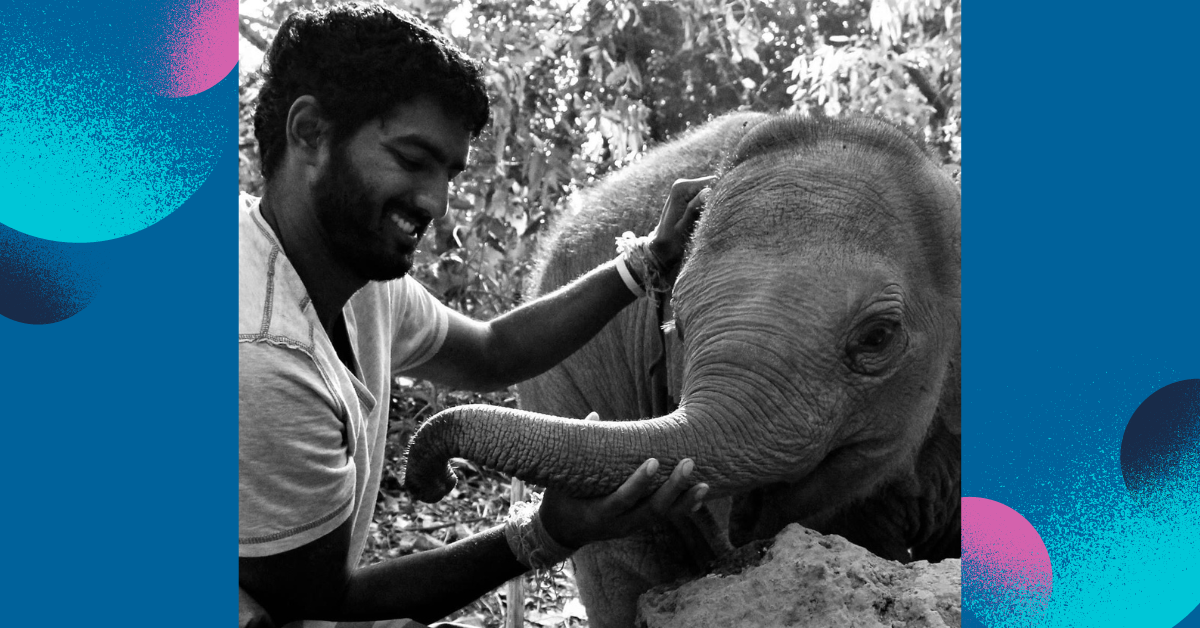Saving Elephants, Supporting Farmers: Fulbright National Geographic Award Sends Doctoral Student Sateesh Venkatesh to Sri Lanka
Story by:
Published Date
Article Content
For most, spending nine months tracking elephants through Sri Lankan landscapes, monitoring their interactions with humans and documenting their behavior sounds like a wildlife lover’s dream come true. For UC San Diego doctoral student Sateesh Venkatesh, this will soon be reality.
Venkatesh, who is pursuing his doctorate in the School of Biological Sciences, has been awarded the prestigious Fulbright-National Geographic Award for 2024. The rare honor is granted annually to five individuals in the country, offering up to $20,000 toward supporting projects that address global issues through science, storytelling and education. With this award, Venkatesh will be traveling to Sri Lanka to research the complex, critical—and sometimes deadly—relationship between farmers and elephants.
“As a conservation biologist, it's about examining the behaviors of both animals and people and seeing how they relate to each other,” explained Venkatesh, who has a rich history of fieldwork exploring human-wildlife conflict that has taken him to conduct research across four continents.
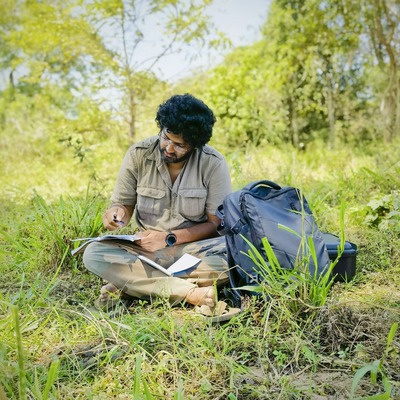
What began as a general interest in animals at a young age has evolved into a fascination with the interactions between people and wildlife. His experience with wildlife started in high school, when he volunteered on conservation projects in Africa and India. He went on to earn an undergraduate degree in biology from The College of Wooster in Ohio before traveling the world to participate in conservation projects in Thailand, Ecuador, Costa Rica and more.
Eager to strengthen his research skills, he received a graduate degree at Hunter College in New York City, where he focused on animal behavior and conservation. During his time there, he collaborated with the Smithsonian Conservation Biology Institute on a project exploring elephant personalities and their potential connection to human-wildlife conflict. Now, as a researcher in Shermin de Silva’s lab in the Department of Ecology, Behavior & Evolution, Venkatesh is preparing for an in-depth exploration of Sri Lanka’s conservation challenges.
Telling the Story of Human-Elephant Coexistence in Sri Lanka
As Venkatesh explains, local farmers and elephants in Sri Lanka, particularly in areas adjacent to national parks, are experiencing increasing conflict. These farmers practice small-scale subsistence farming, cultivating crops like bananas and rice that are also favored by elephants. The main issue arises when elephants leave the park at night to raid these crops.
Elephants have become skilled at bypassing barriers such as electric fences, leading to costly damage and frequent clashes between humans and wildlife. These conflicts can be deadly on both sides of the situation. According to the Wildlife and Nature Protection Society, in 2023, at least 169 people were killed by elephants in Sri Lanka, while humans killed 476 elephants. As part of his project, Venkatesh aims to develop mutually beneficial, sustainable solutions for both humans and elephants.
“What we're trying to do with our work is de-escalate the conflict,” said Venkatesh. Among the strategies to meet this goal include suggesting for farmers to grow crops that elephants are less interested in eating, such as cinnamon or moringa, so elephants spend less time on their farmland. “The less time people and elephants spend in contact with each other, the less likelihood there is to cause this conflict and cause death.”
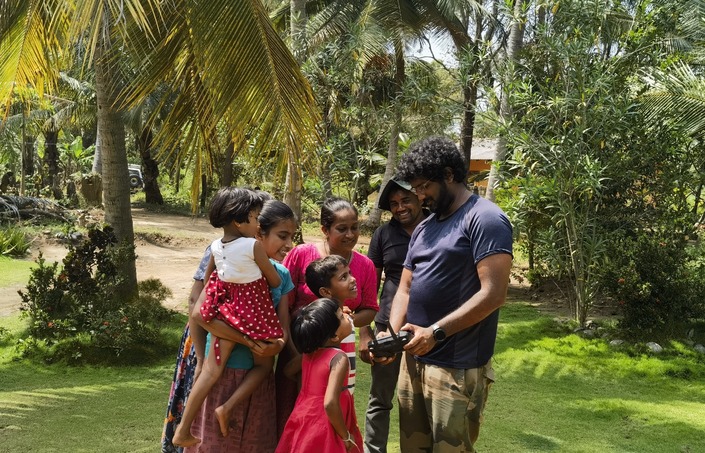
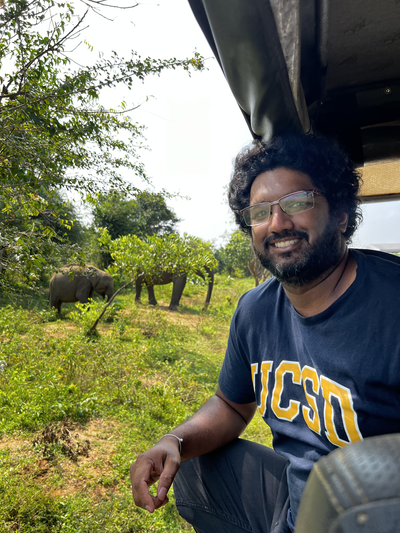
As a core element of the Fulbright National Geographic Award is digital storytelling, he plans to capture individual stories of farmers and elephants to tell a dual narrative of shared landscapes and stressors. He will do this through the use of drone mapping, camera traps and collaboration with local communities and field teams. His research will also measure the effectiveness of his project’s interventions over a long-term study, looking at how changes in crops and other factors, like climate and soil quality, impact both human and elephant behavior. With support from National Geographic, he also hopes to create a short documentary showcasing the findings and experience altogether.
Guiding Students to Lead Global Journeys
The support from UC San Diego’s Global Initiatives department plays a major role in making academic research journeys—like the one Venkatesh will embark on—possible. Global Initiatives coordinates the Fulbright Student and Scholar Programs for UC San Diego. The department also actively promotes and advises students, faculty, researchers, academics and staff on the myriad of overseas opportunities available through the program.
“Recognizing the value of Fulbright awards for both the awardees and campus, Global Initiatives has scaled up their advising and support strategy significantly over the past few years,” said Max Reinke, who works at Global Initiatives as the Fulbright Scholar Liaison and the International Agreements and Communications Analyst.
Students interested in a Fulbright can enroll in a Fulbright Course in Spring Quarter so they can earn academic credit while they work on their Fulbright application. Each cycle, Global Initiatives organize applicant cohorts, so students have additional peer support on top of the individualized advising conducted by the Fulbright Program Advisor.
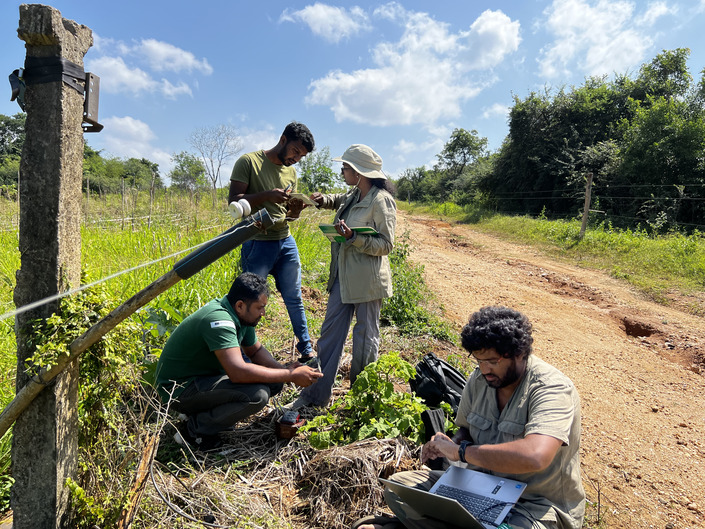
Reinke also explained that the Fulbright National Geographic Award is unique in that in addition to the benefits offered to Fulbright awardees, they are inducted into the National Geographic Society's global community of Explorers. This community offers additional funding, training, invitation to Explorer events, speaking engagement opportunities and a personal mentor.
“With National Geographic being at its core a media and publication powerhouse, there is an added emphasis on the storytelling component of the research project. This skill is so important for early career researchers to learn how to best communicate the impact and importance of their work,” he added.
Global Initiatives Director of Outreach and Academic Engagement Jay Minert highlighted the range of Fulbright awards available, from English Teaching Assistant Awards to Open Study/Research Awards, each supporting diverse academic and research pursuits worldwide. Minert also serves as the Fulbright Student Program Advisor.
Venkatesh’s upcoming trip to Sri Lanka underscores the potential of such awards to drive meaningful change and foster global understanding. For students considering a Fulbright or other research opportunities, he offers this advice: “Just go for it.” And, while conservation work often involves travel or fieldwork, he emphasizes that there are also numerous opportunities right here in San Diego to get started on making a difference.

Share This:
You May Also Like
Stay in the Know
Keep up with all the latest from UC San Diego. Subscribe to the newsletter today.
